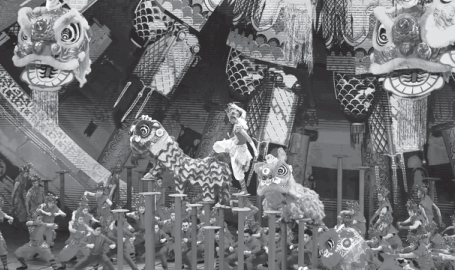Lion dance show makes recent CCTV Spring Festival Gala
By CHEN NAN | China Daily | Updated: 2019-02-18 07:53

"Falling from the poles is normal for beginners. You just climb up again and again to practice," Deng says. "It's about courage, persistence and hard work."
In 2008, he met Chung To-yan, the director of the Bilintang Lion Dance Troupe, who invited Deng to join. Deng is now the head coach of the team of about 300 members. With its headquarters in Foshan, the company has 10 branches in the country, including Shenzhen, Shanghai and Chengdu, Sichuan province.
Chung, 60, who was born in Hong Kong, dropped out of school at a young age due to poverty and started practicing lion dance techniques.
"Besides technique, my teachers also taught me about traditional Chinese culture and the etiquettes of lion dance," says Chung.
But in late 1980s, Chung suspended his career as a lion dance performer and started to run a business since he struggled to make ends meet.
Like many other traditional art forms in China, lion dance also faces a decline due to the poor income it generates for performers and the physical risks involved while performing. In 2008, Chung returned to Foshan and gathered some veteran performers, aiming to revive the Bilintang lion dance style.
He led the team to join in international lion dance competitions and popular TV shows to introduce and promote Bilintang lion dance. In 2018, the team participated in 29 international competitions, including the ninth Malaysia International Lion Dance on Stilts Competition, and won 12 gold medals.
Chung also works with local schools to stage lion dance performances, hoping to cultivate young people's interest in the old art form.
























